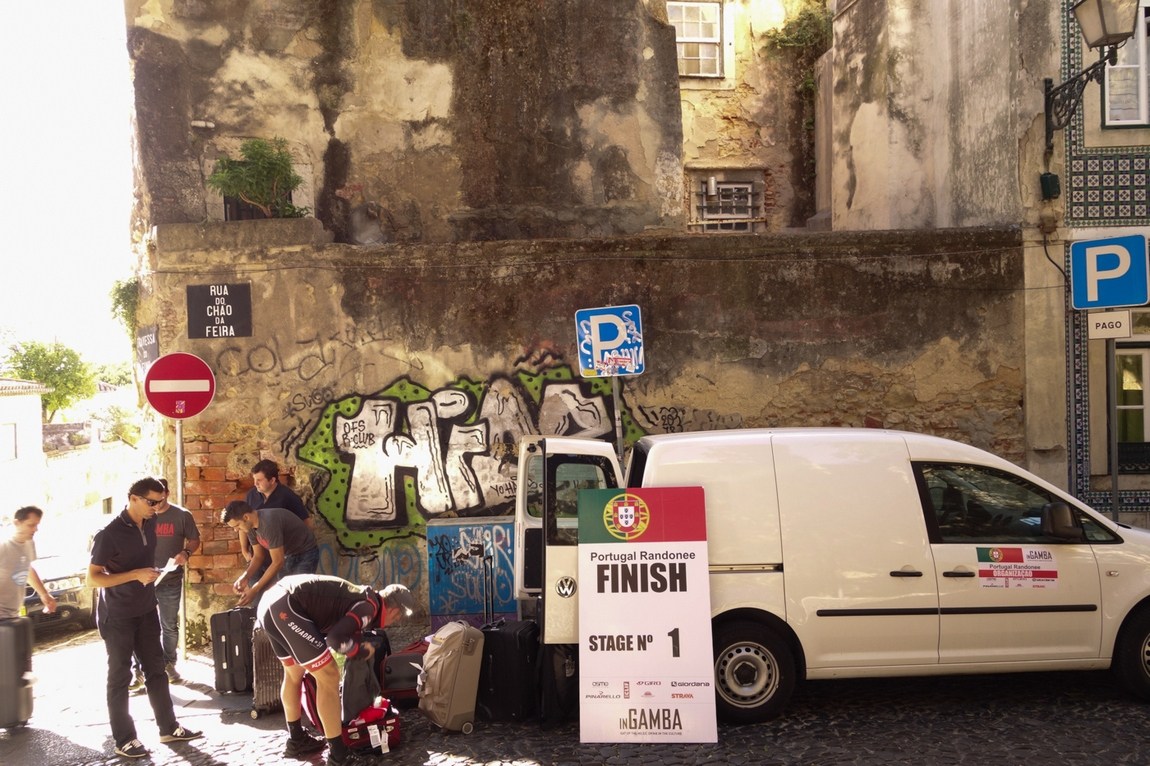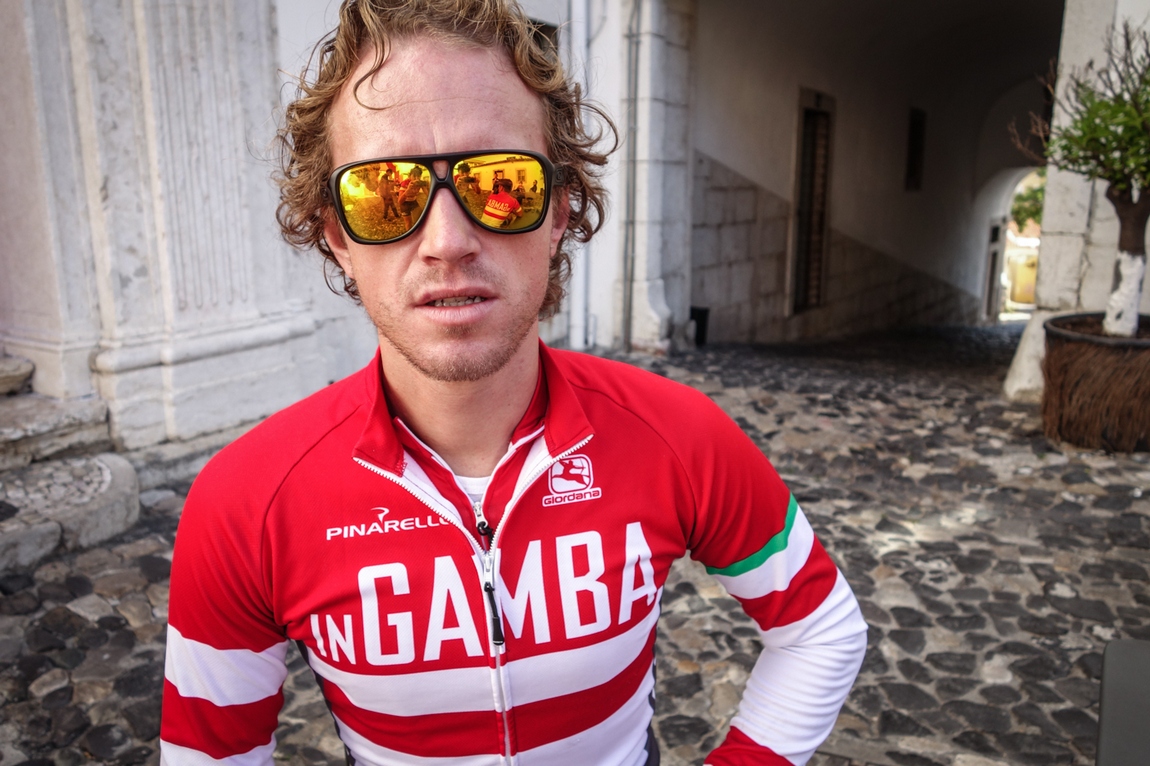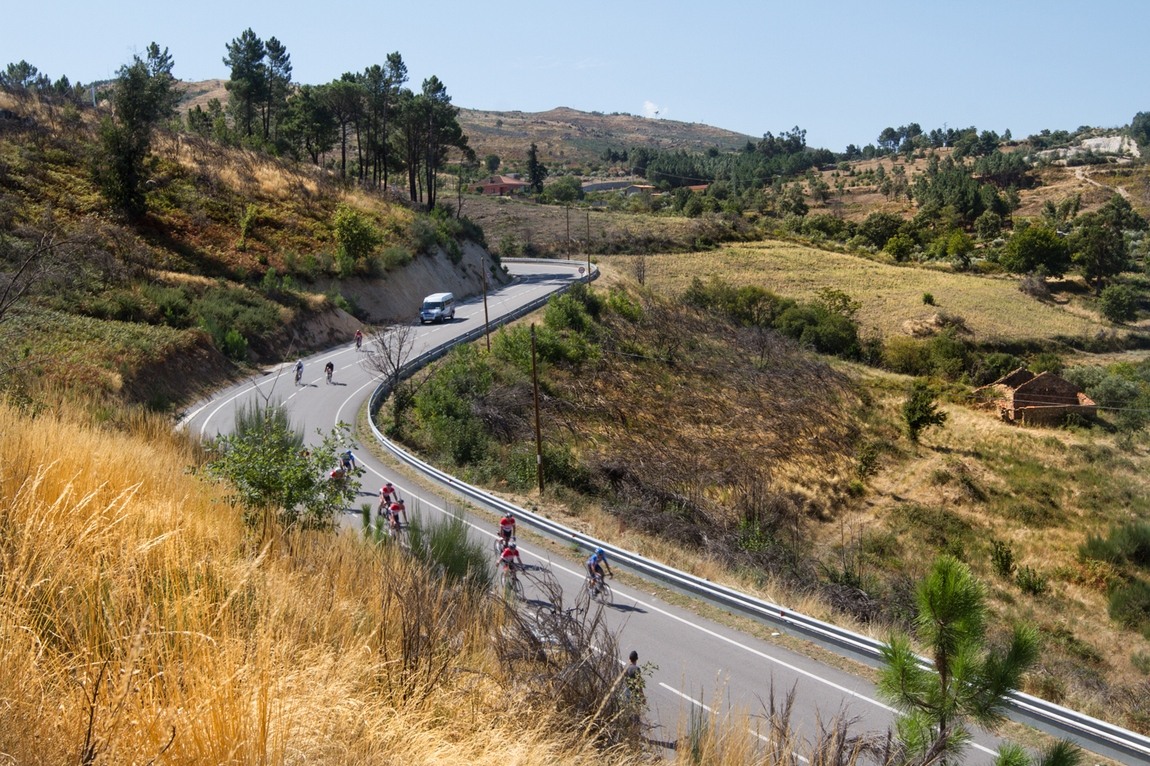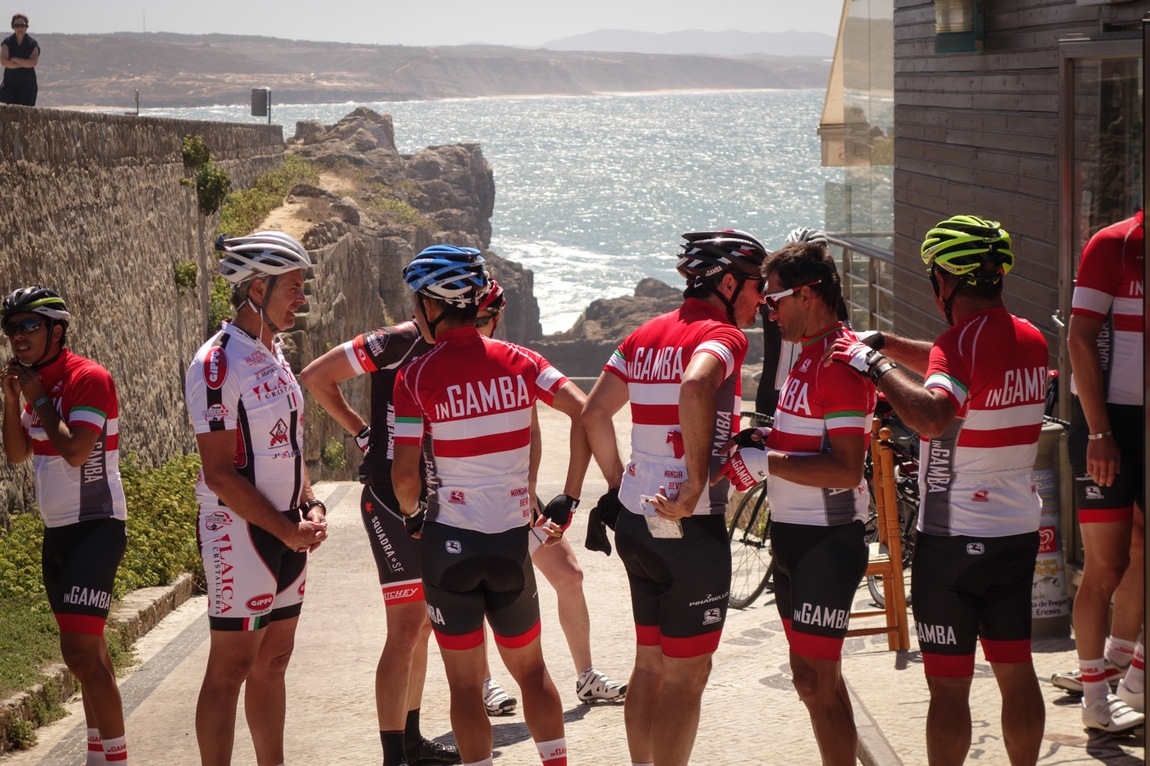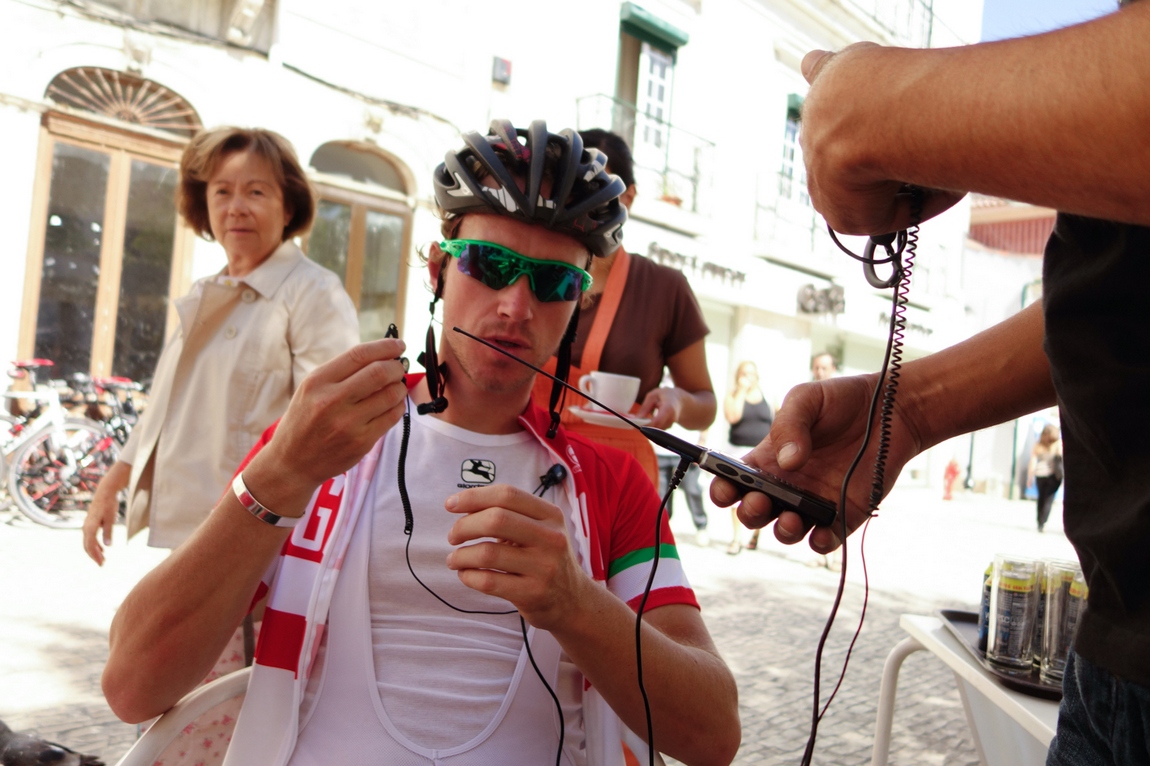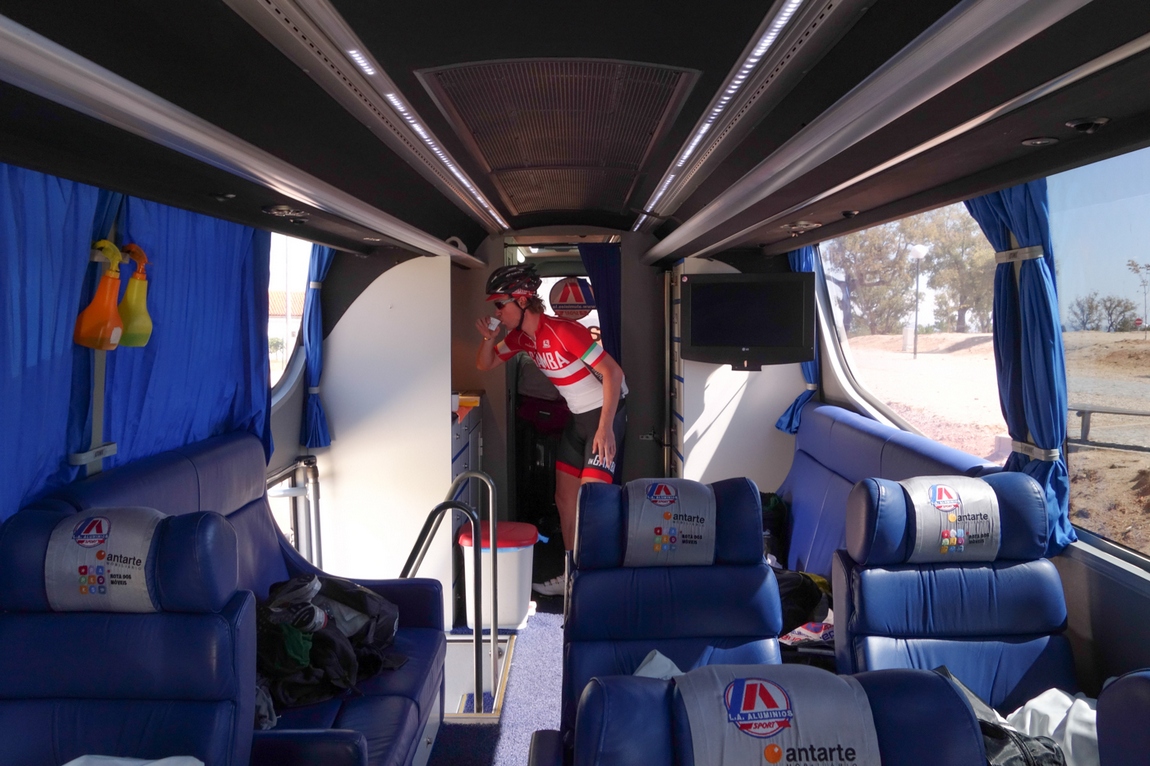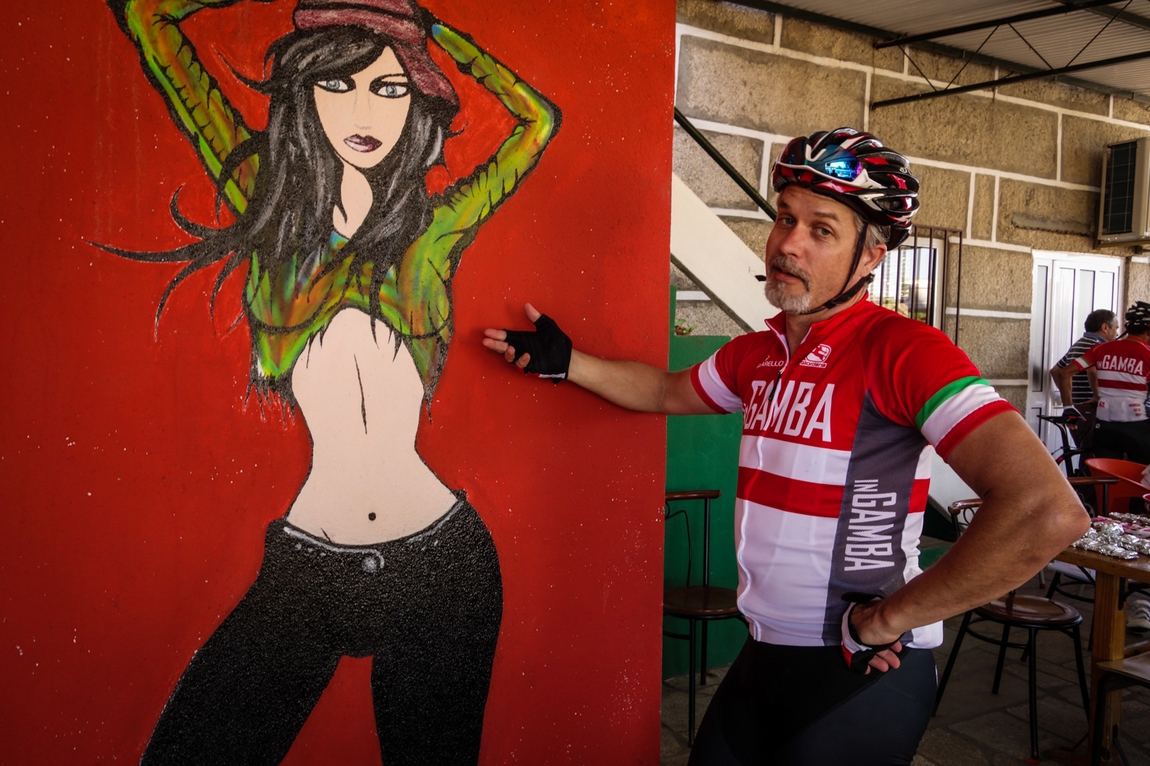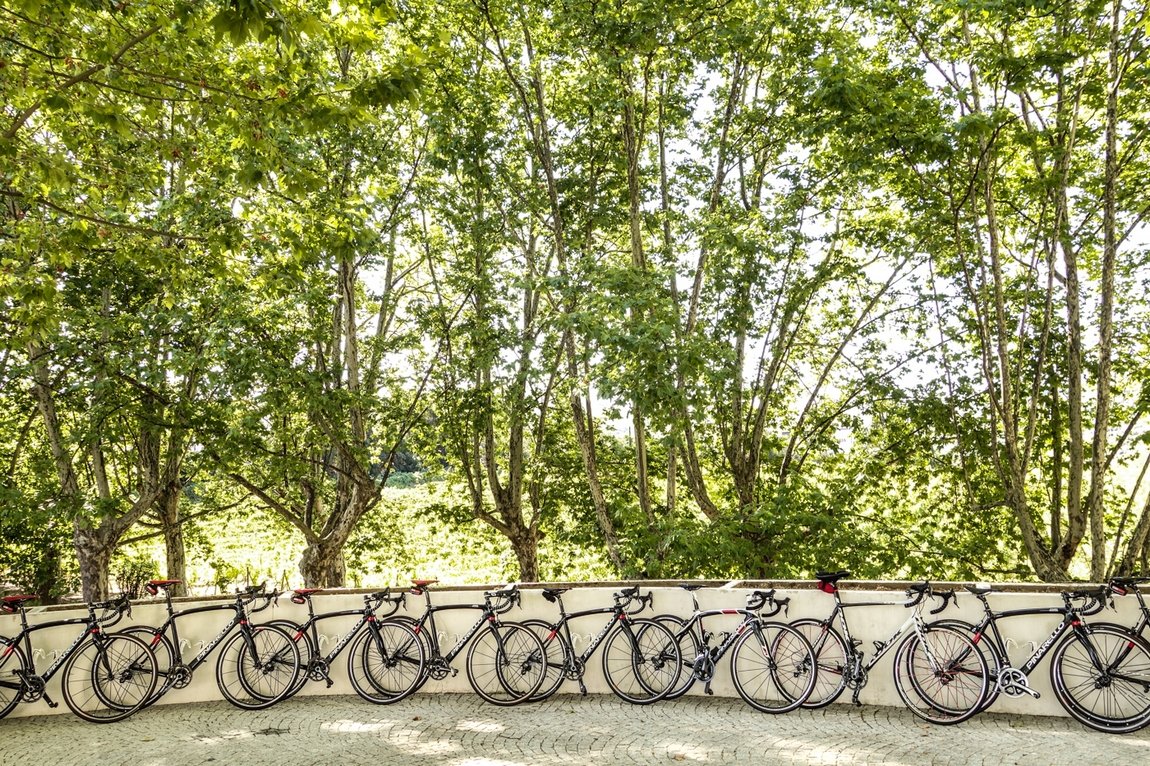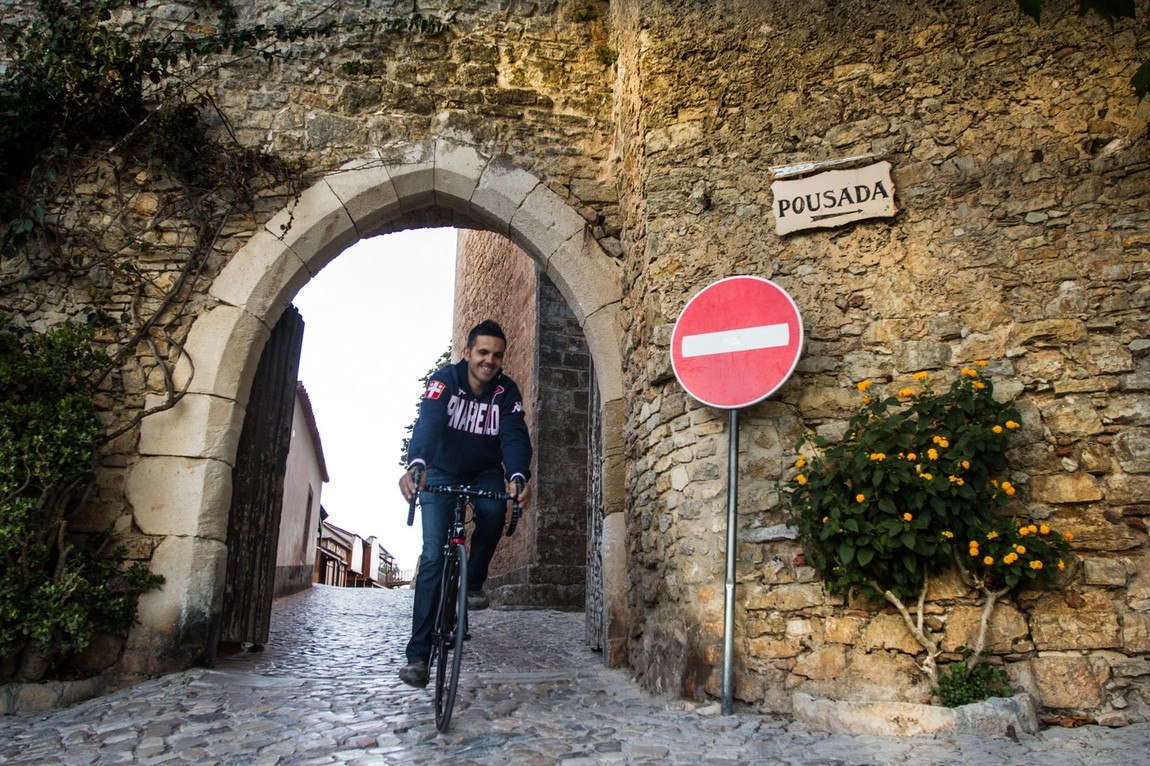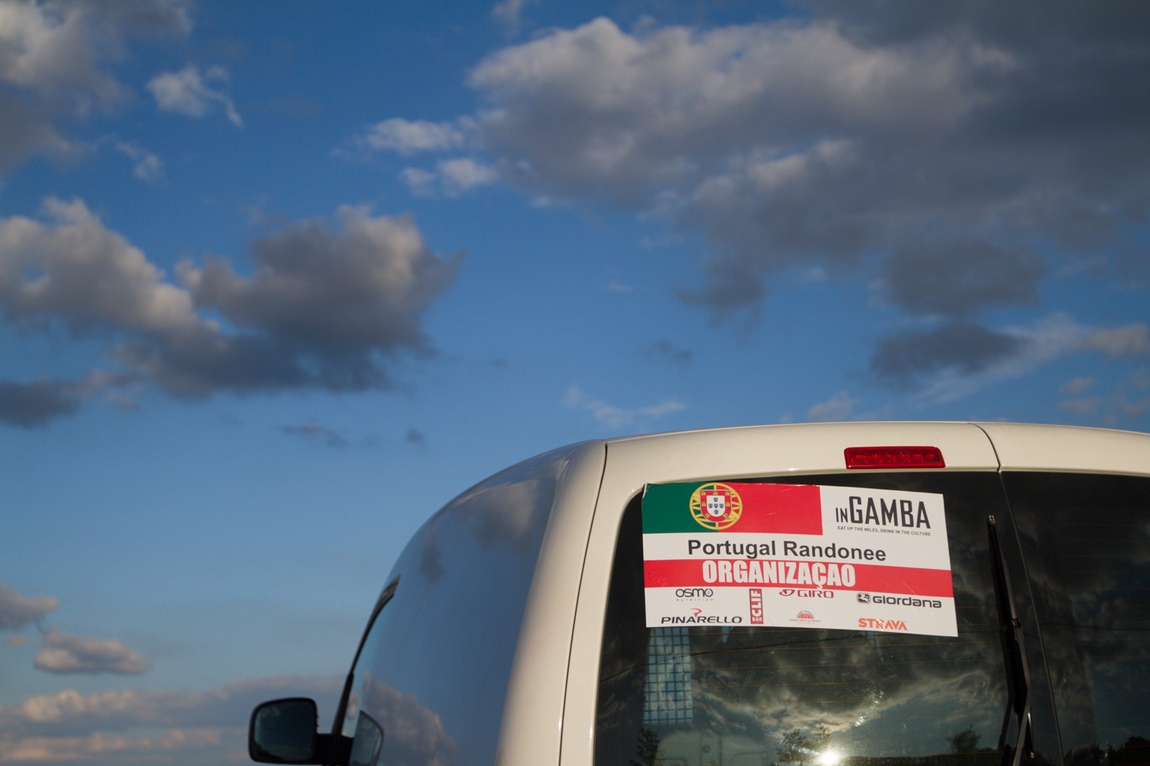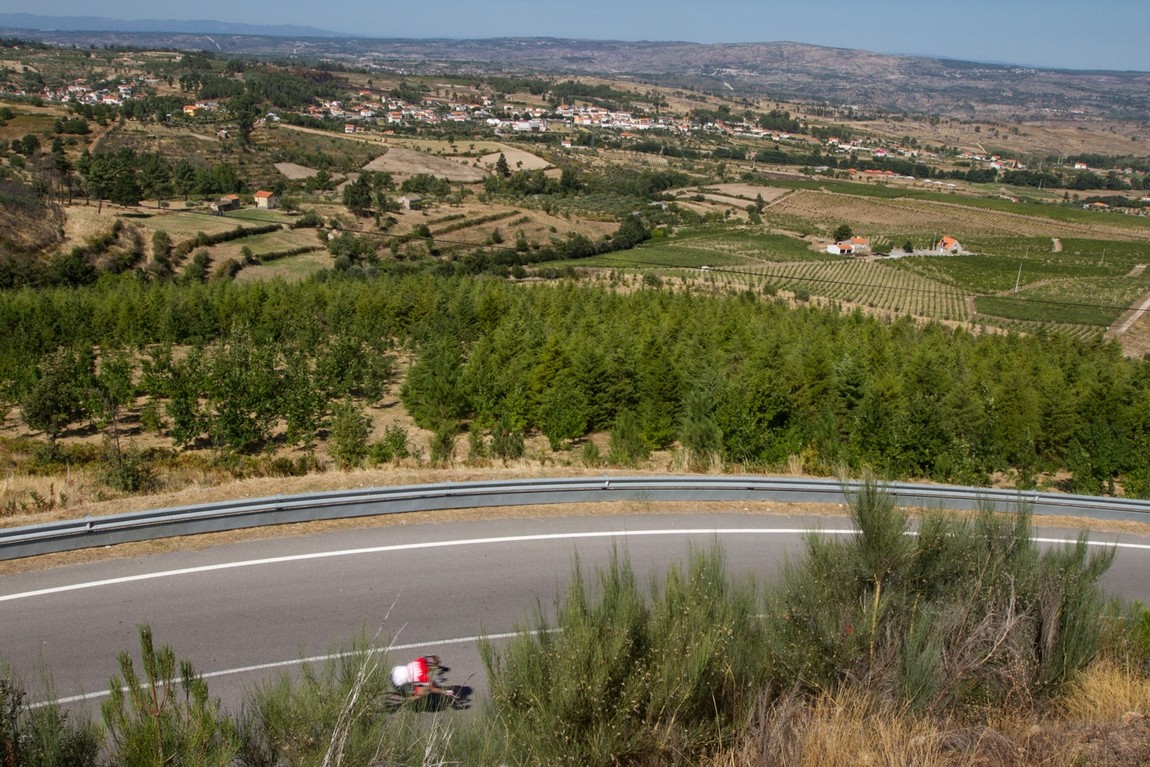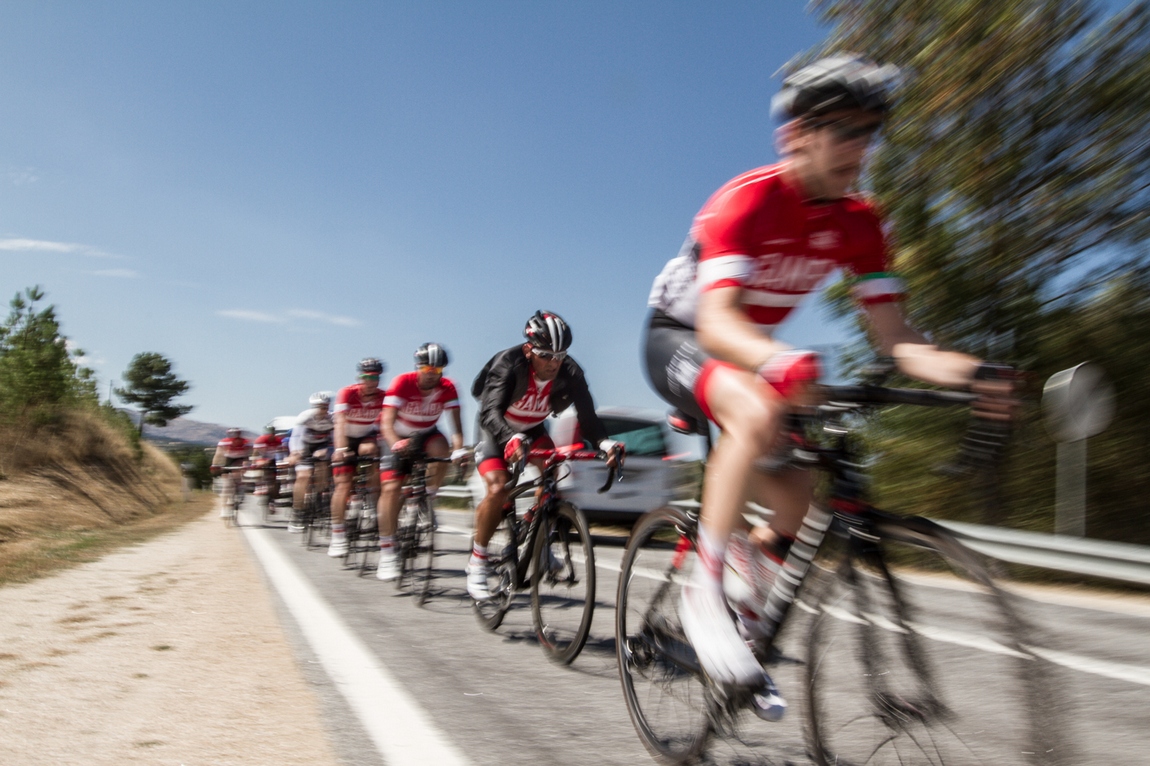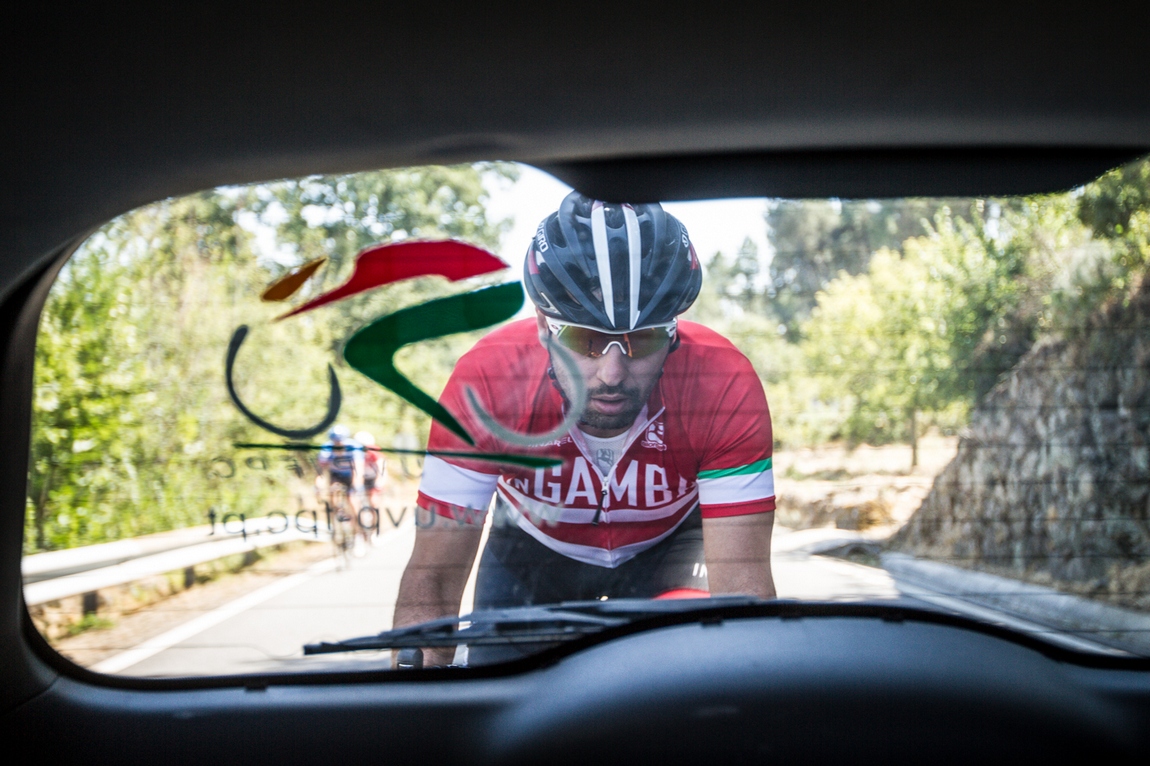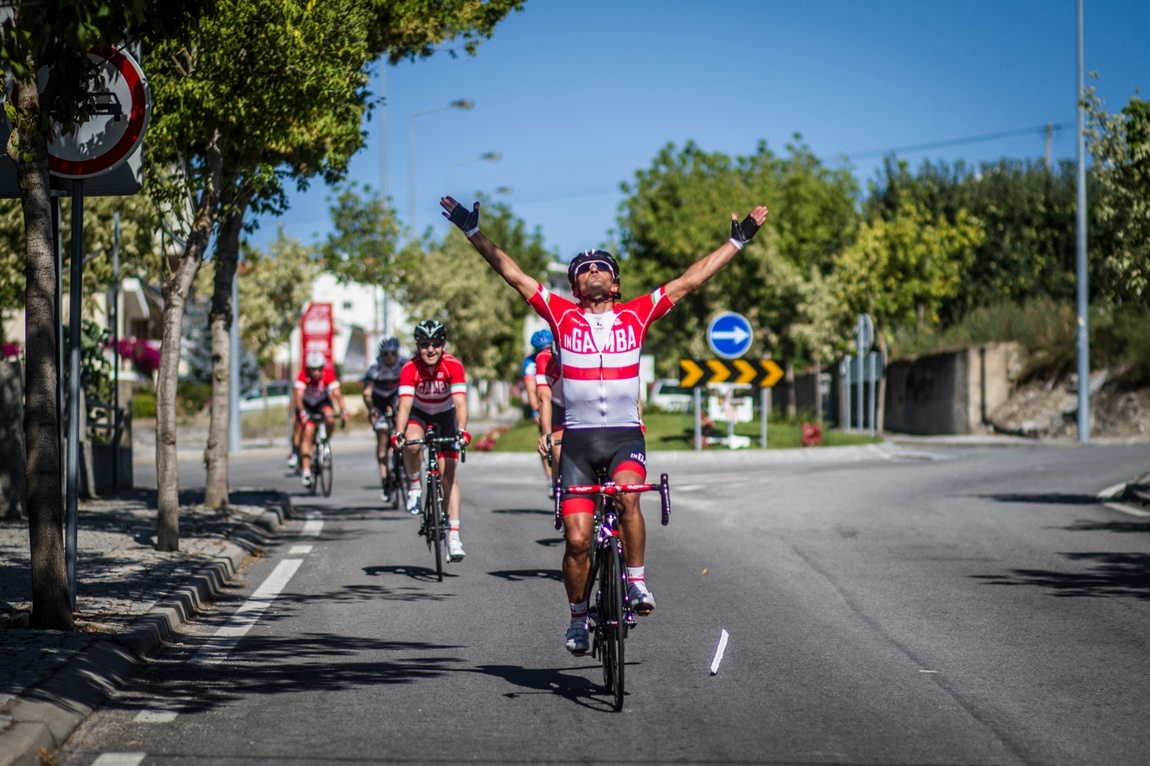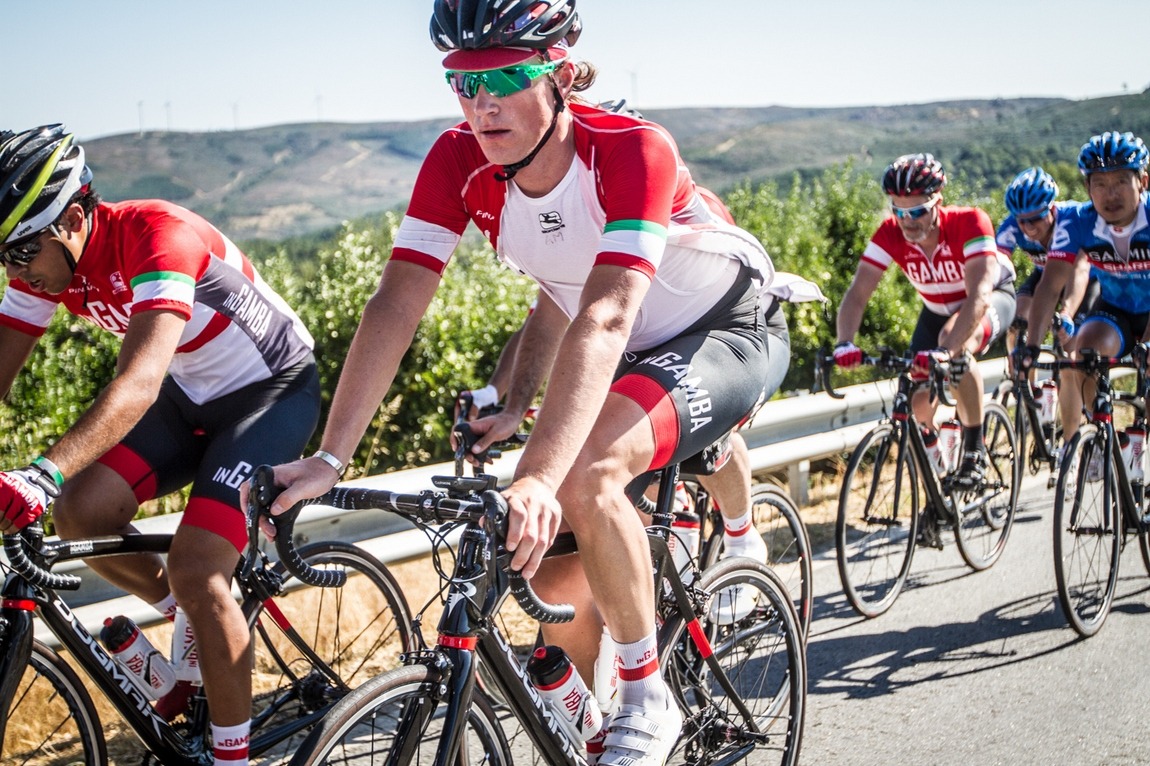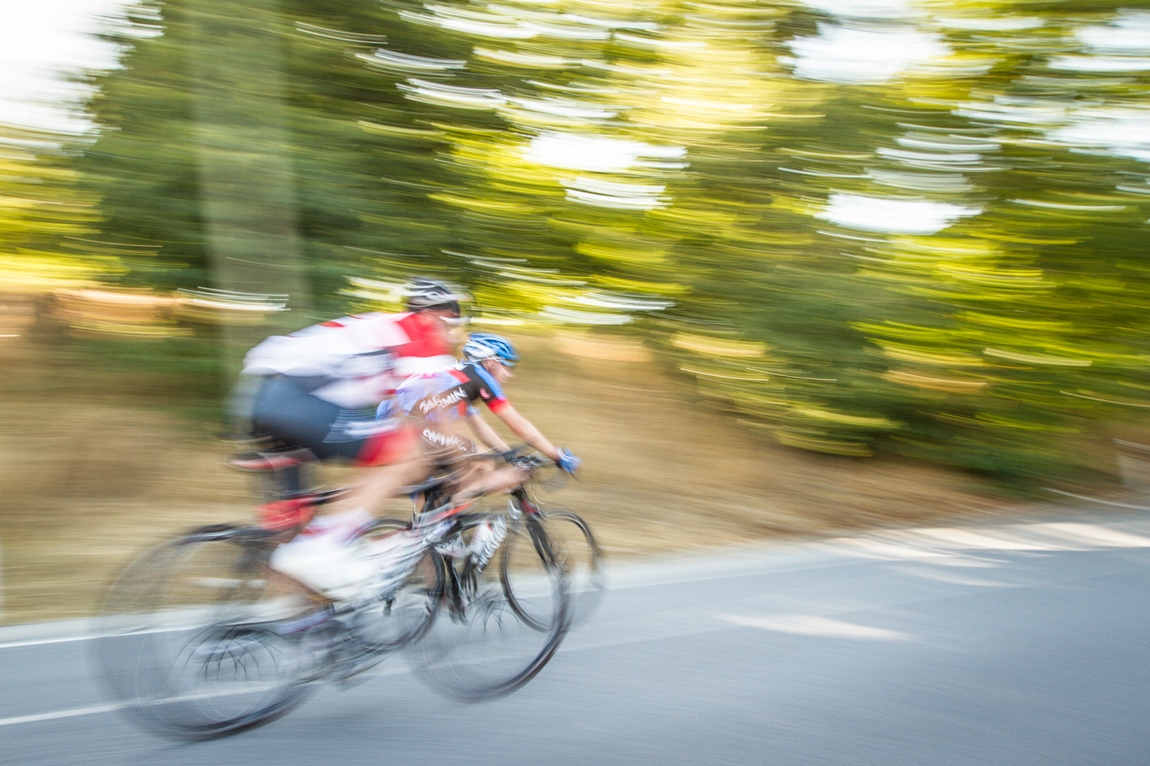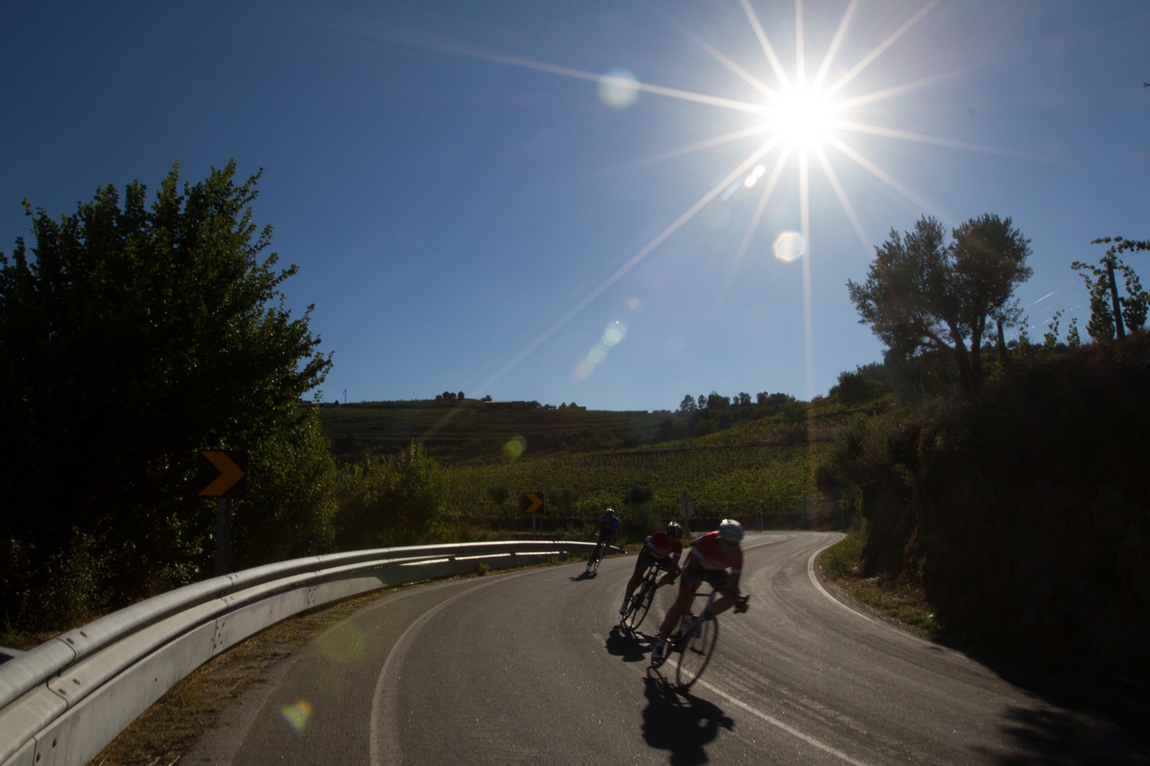I was afraid, anxious and nervous. How was my body going to feel riding 60-100 miles (100-160km) every day? Were the other riders going to ride faster and leave me behind? Was I going to be able to ride side-by-side with pros and former pros?
All those questions were answered the second I started to ride the InGamba Tours Portugal Randonee. Over 450 miles (724km) in seven stages I not only felt like I belonged to a team; I felt like I was part of the family. Everyone wore the same red and white Giordana kit and everyone was riding a Pinarello Dogma K 2014 with their name etched on the frame.
By my side I had the omnipresent support of the team vehicles and the mechanics and after the rides I could share a quiet moment with the soigneurs. We even did all of our transfers in a team bus where we could rest our legs while contemplating the valleys and hills of Portugal’s Porto wine-making region.
Coming into this incredible week of riding, one of my biggest fears wasn’t the climbing but the fast descents with their tight curves. Since I crashed hard on a rainy day two years ago I have lost confidence. My mind still has moments of doubt when I see a downhill approaching.
But with the help of João Correia, the founder of InGamba Tours and a former professional rider for Cérvelo Test Team in his own right, I regained my self-belief. He only needed to say “leave your brakes!” and other words of wisdom. And even if he wasn’t behind to remind me, I would have his company in my mind when I was trying to catch the front group.
João Correia – the founder of InGamba – is always at your service. Even at a coffee stop at Ericeira – the Portuguese surfing spot – Correia serves an espresso to the riders.
João Correia has an inspiring story to tell. He used to ride professionally until he was 21 years old at which point he decided to substitute sports for a desk job. Not only did he put on weight, he became the size of two professional riders.
But in 2006, he was riding in a recreational race in Italy beside a client and the one and only Fausto Pinarello, the founder of the top quality bike brand, who noticed Correia’s strong technique and asked if he had ever raced.
After Correia recounted his former glories, the client urged him to give it one more shot. So at 34 years old, at the age some riders retire, Correia came back to professional cycling with the Cérvelo Test Team.
The year Correia that pedalled with Cervelo most of the team camps were held in the region of Chianti, in Italy — a region that helped create the inspiration for InGamba Tours.
“The idea of InGamba [formerly FatMan Tours] was born during a ride in 2010 when I realised that I really wanted to have a connection with the place I was living”, Correia explains. It “was a place that I really liked; everything was so simple.”
“I would like to have a place where I could ride my bike in incredible roads without looking at the powermeter. I would like to eat at my favourite restaurants and at my friends’ houses without looking at the scale. And I would want to drink wine from the bottle and do not just have one glass”, explains Correia.
The first InGamba trip began with a Twitter challenge. Correia (@joaoisme on Twitter) asked his followers if some of them would want to follow him in Italy where they would ride during the mornings and get to know the area in the afternoons. Four people joined the first trip and that number doubled the next spring. Now InGamba provides tours to many destinations, including a week in Chianti for women only.
And so in September of this year, Correia came to Portugal and showed a group of us Portuguese culture and gastronomy on a trip where we slept in palaces, designer hotels and Pousadas (a chain of historical hotels in Portugal) from the XII century and ate in picturesque restaurants.
Our group came from a range of countries and with a range of backgrounds — from venture capital managers to industry designers and everything in between. And in many ways, the Portugal Randonee was merely an excuse to get out and experience the fantastic local food and drink on offer around Portugal.
Raul – a pro rider for 20 years and with 15 Tour of Portugal attempts – is the funniest figure you can meet. His gestures, the way he talks and acts make you smile every time you see him. Here he is joking about rehydrating with wine.
At the end of the first stage of 60 miles (100km) I had a big cramp in my quad. We had been riding through cross- and headwinds along the Portuguese coast before we had to do an uphill finish to the castle inside the medieval village of Óbidos.
Going to sleep that night I was nervous about what the next day would bring but the presence of the skinny RadioShack Leopard Trek Portuguese rider Nélson Oliveira on stage two helped me to relax as I pedalled alongside him.
And I wasn’t the only nervous one before each stage. Everyday I saw anxiety and nerves in the face of the riders as we all ate a silent breakfast. And every single day I had to pack my bags and kit up with butterflies in my stomach, nervous about what the day would bring.
Surprisingly, after two days with wind and rolling terrain, my body felt great on the third stage. Maybe it was the food and drink I had in the first hour of the ride or maybe my legs got used to the fast pace.
I finished the stage happy at Penhas Douradas — 1,500 meters up the Portuguese mountain Serra da Estrela — after a 13-mile (21-kilometre) climb where the maximum gradient touched the 15% mark. But for others like Colly — an Irish wine importer — it was all about “suffering, suffering, nice view, suffering, suffering”.
Some 100 miles (160km) were on the menu for the fourth stage — the longest day of the tour. The first 20 miles (32km) were painful as the soigneur Raul, who rode professionally for 20 years and participated in 15 Tours of Portugal, told me the day before.
The six hours cooked me not because of the terrain – most of it was downhill – but because it was hot (I drank almost ten bottles of water and sports drink) and I could not feel my arms or butt any more. Only the post-ride feast of fruit, sandwiches, recovery drinks and even beer or champagne on the last day made me feel better. Even the wine of the Quinta da Pacheca winery recharged my batteries.
Portugal is known for its coast and the beaches at the Algarve but you can find much more beauty in this country. Serra da Estrela is Portugal’s highest mouintain (1993m) and we had the possibility to climb to the 1500m point – the Hotel Casa das Penhas Douradas.
But the accumulated fatigue from the early stages all hit me on the fifth stage. With just a 2nd category climb in the middle of the day, only the ride along the Douro river and its valleys and wineries felt comfortable.
The finish of that fifth stage was tough. I was riding alongside the always-funny Ian and suddenly we saw a village on top of a hill to our right. “Now we have to climb that”, he said, just kidding. But then the signs put out by the tour organisers earlier in the day started pointing us to the right. Yes, we had to climb that.
I was laughing so much inside while suffering on the last two kilometres to that Roman village of Marialva, trying to keep the pedals turning over on the cobblestones while the locals applauded and shouted “you can do it!” or “are you a man or a kid?!”.
On the sixth day everyone was ready for a rest. Actually the plan for the stage was to ride 50 miles (80km) after a yacht trip on the green and blue Douro River and lunch on the river banks. But a smile appeared on everyone’s face when João asked “Should we take the day off?” We didn’t have to worry about bikes or pedals — it was a day of no food or wine limits.
After every stage we had a buffet waiting for us: fruit, bread with cheese and ham, recovery drinks, even beers and champagne on the last day.
My legs felt great on the last stage when we arrived in the city of Caminha, close to the river Minho in the northern reaches of Portugal, just near the Spanish border. I was able to be on the front pushing the group and not even the wind made me give up the fight against my mind and body that had started on the first day.
One of the things that fascinated me about the Portugal Randonée was the way my body reacted to the hills and descents with varying levels of energy. I was also reminded of the importance of rest and sleep and the benefits of massage. The quality food and wine Portugal provided helped us to heal and hydrate.
Everyone was delighted by the amazing Portugal we had seen, the nice people, the untouched monuments from ancient centuries and the delicious food and drink. In a team, riding hard, we had all discovered a little bit more about Portugal, the beauty of the hills and valleys, the rivers and the sea, the coast and the mainland, the people’s humility, the simple ingredients that make tasty dishes and the roads which are so good to ride on.
Disclosure: Miguel Andrade was invited by InGamba Tours to take part in this tour. CyclingTips did not receive any payment from InGamba Tours for publishing this article.
About the author
Miguel Corte-Real Andrade is a freelance sports, food and travel journalist. He studied for three years in Brussels (Belgium) and did his Masters degree in Norwich (UK). Now living in Lisbon (Portugal) he rides bikes and writes about gastronomy at his blog called Prato à Boca. Miguel can be contacted via email here.
- Andy Mackie is one of the InGamba guides and he is always ready to give you a push when your body is suffering through the hills. Here the Scottish guide is contemplating the riders who are preparing to leave the Belmonte Palace for the 1st stage.
- The team van was always behind the group to support the group.
- InGamba is about more than riding — it’s about contemplating the beauty of the places you ride through. The sea and the breeze at Ericeira were the scene for the first ride stop.
- For better communication, all of the guides used race radios so they could talk with each other and with the team vehicles.
- At the Portugal Randonée we had the opportunity to travel in a pro team bus - the bus of the portuguese professional team LA-Antarte - with seats that can turn into beds, showers, TV and a coffee machine.
- People that come to the InGamba trips have many things in common. One of them is the way they live life. They want to ride, eat and drink and mostly they want to have fun. Ian - an American that works at salesforce.com - is funny, relaxed and a strong rider.
- Everyday all the bikes are lined before each stage. At the Douro winery, Quinta da Pacheca, it was no different.
- When not working for InGamba, Hélder is a full-time mechanic for the Portuguese professional team Efapel. He drove the front team car and was always present to give bottles and to laugh and drink with us.
- The Portugal Randonée had all the little details. Like a professional road race, all the stages had signs for the turns, 25km or 10km to go and the organisation car left everyday before the riders so all the roads were sign posted.
- Some of the stages were really fast but everyone had their time to be in front and push the group. Colly - an Irish wine importer - came to the front to put a fast pace here.
- João Correia is an ex-professional rider but he has not lost his riding experience. He knows when to attack, when to go to the back of the group and when to ride fast behind the team car.
- The fun spirit is always present. Raul is celebrating his intermediate sprint win after a big lunch on the Douro wine region.
- Some riders know how to hide the suffering. Andy with his pocker face is climbing while the others show their pained expressions.
- On some of the climbs the group separated. But the pursuits were done really fast.
- David in the front, João on his wheel and Stephen at the back of the group trying to reach the front group.

